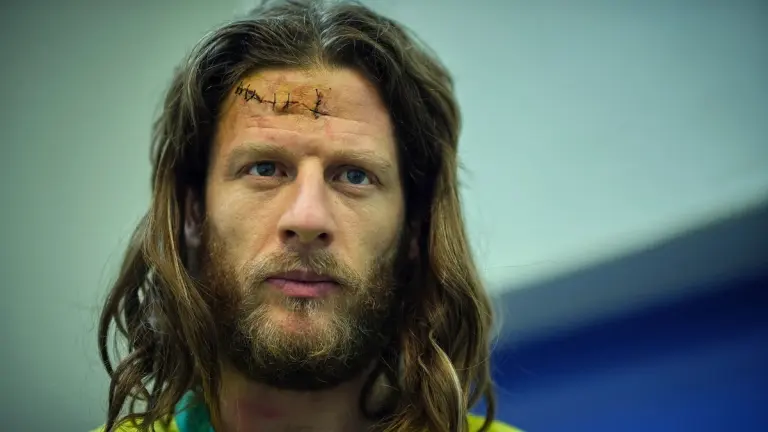
The Last of Us – Sky Atlantic/ Now
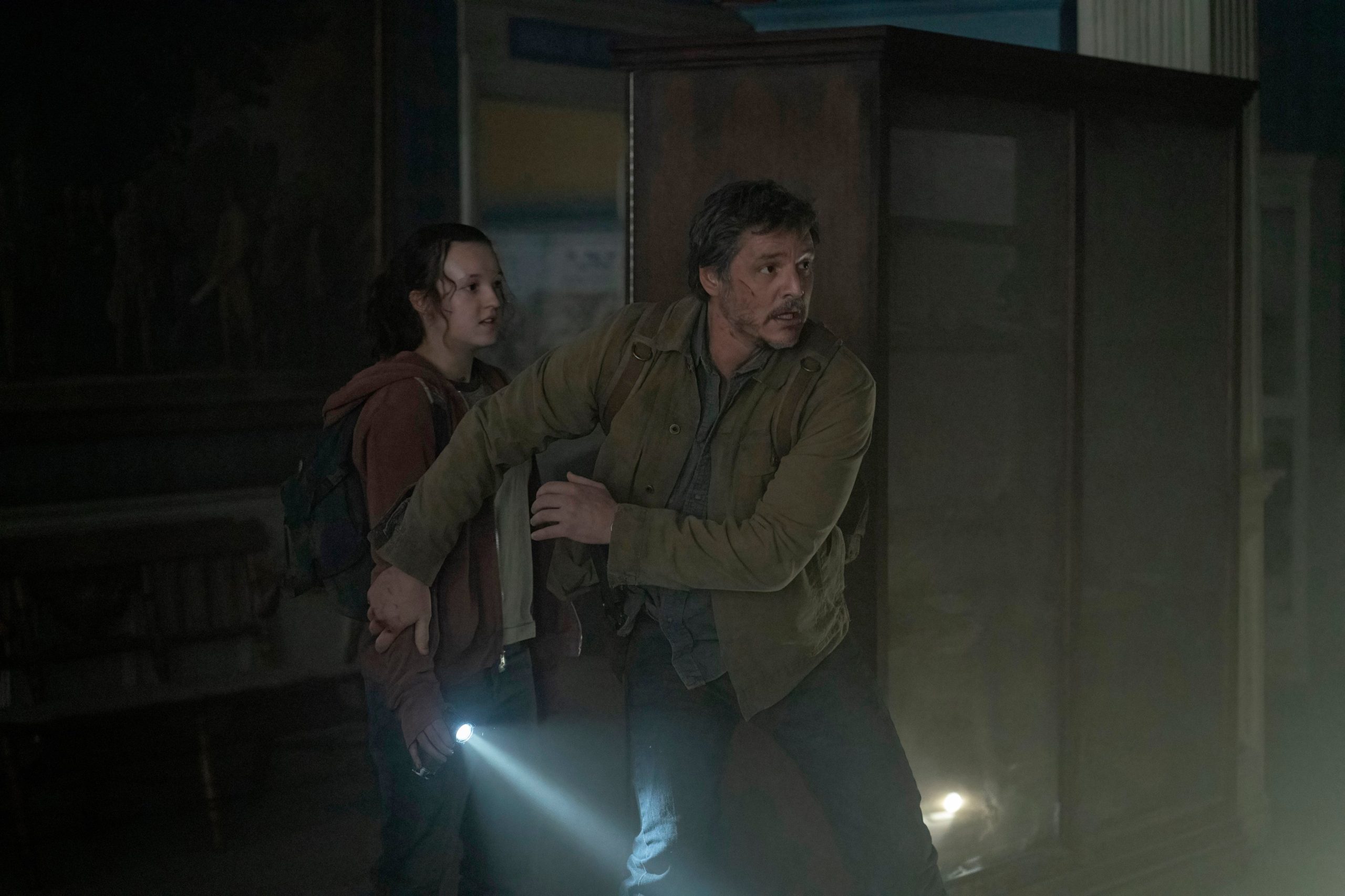
Credit: HBO
I have a complicated relationship with zombie stories, and I don’t think I’m alone. It feels like there’s been a shift in mood, a maturing of the genre partly due to the collective grief society experienced in and around the pandemic. Fans of the genre are once bitten twice shy, thanks to the abject misery that The Walking Dead became. The Last of Us also has baggage of its own to carry, being a TV adaptation of a successful computer game which, so far on big and small screens, has proven to be a poisoned chalice.
This much-lauded show, which has already been renewed for a second season, is actually worth the hype. I’ve had to build an extra edge on the edge of my seat to watch it.
The first episode reveals how global infrastructure can go down the pan within 24 hours thanks to a fungal contagion from Indonesia. The fragility of society and the speed at which things change without warning is far more believable now, thanks to Covid. These zombies are what you get if you order the plant-based option.
Dad Joel (Pedro Pascal, brooding) does his best, by daughter Sarah (Nico Parker), who is our audience proxy, is baffled and frightened. She deserved far longer on screen, but her wretchedly realistic death is the catalyst for Joel’s future mission of redemption.
Twenty years after Outbreak Day, everything is just peach in the quarantine zone in Boston. The military is murdering people on arrival and hanging criminals trespassers. In this dystopia, Joel is a fixer on the edge of society, or what passes for it. He’s on his way to find brother Tommy in Wyoming with partner-in-crime Tess and gets mixed up unwillingly in politics and rebellion. He’s tasked with smuggling out a girl Ellie (Bella Ramsey embodies this role), who seems to be a living vaccine. She’s been infected, but the infection hasn’t spread. She’s a symbol of hope, something for us, the viewer, to cling to in a genre that is usually so hopeless. But she’s a real person too, a bright, angry girl imprisoned by the Firefly rebels and looking for somewhere to belong. We get the sense she has an unbreakable spirit.
This is riveting stuff and visually striking, making all other prestige dramas look cheap. Many of the most beautiful shots are straight from the game, including a car chase scene with the viewpoint from the back seat. By the end of the first episode, we’ve met all the leading players, characters that are so human that we can’t help but fall in love with them, despite knowing with cold certainty that they won’t be with us for long. Episode three particularly has the critics enraptured, calling it the best TV episode you’ll see all year. With such a strong start, I really hope The Last of Us can maintain all that sets it apart from the rest of the shuffling horde.
Extraordinary – Disney+
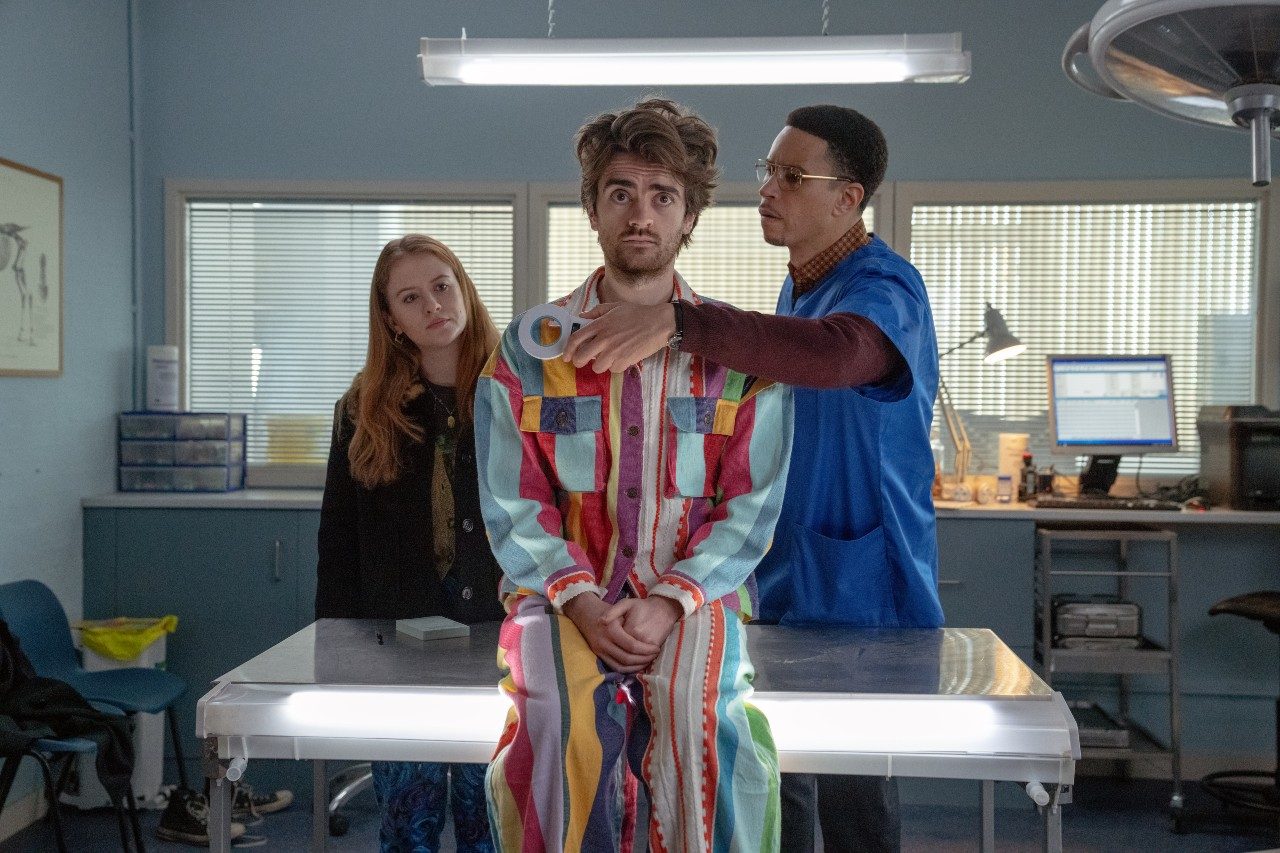
Credit: Disney+
Meet Jen, Carrie, Kash and Jizzlord, the stray cat. These are trendy twenty-somethings living in a cruddy shared house in London, struggling with their insecurities and the thought of having to grow up. So far, so ordinary. But this is a world where everyone gets a superpower when they turn 18.
The superpowers here are so inventive and so strange in a seemingly ordinary world. You might wish for some: invisibility, flight, super speed and strength. But there’s also the taxi driver who asks people if they want to know how they’ll die and a dentist who makes people’s personal soundtrack audible when they’re in her presence. There’s also the shy man with a deeply troubling and hilarious origin story who can make people, and animals, climax with just the touch of his skin.
Jen (Máiréad Tyers) is self-obsessed and feels like a reject. Aged 25, she’s still waiting for her power to show up. It doesn’t help that her competitive, smug younger sister Andee, a brilliant musician, gets her super strength bang on her 18th birthday. Jen’s best friend Carrie (Sofia Oxenham) provides the heart, the underdog in the friendship, who is also taken advantage of at work. She works for a firm of lawyers, channelling the dead, so they can be there for their own will readings; she’s unfulfilled (“I’m basically an appliance”). Carrie’s boyfriend Kash (who can turn back time, a couple of minutes back at least) is unemployed and miserable until he gets fixated on setting up a masked vigilante squad. Rather than working out anything, he throws himself into mood boarding and costume design.
This is an excellent multilayered comedy. I’ve not seen anything so expertly done in ages. It introduces the world, the unique concept and all of the main characters in just half an hour. Even the minor characters are so well drawn; Jen’s 56-year-old boss is a world-weary child who never ages. This show is so confident and doesn’t miss a beat. It can’t possibly be writer Emma Moran’s first show, and yet it is. That’s extraordinary. Season 2 is on its way!
Everyone Else Burns – all 4
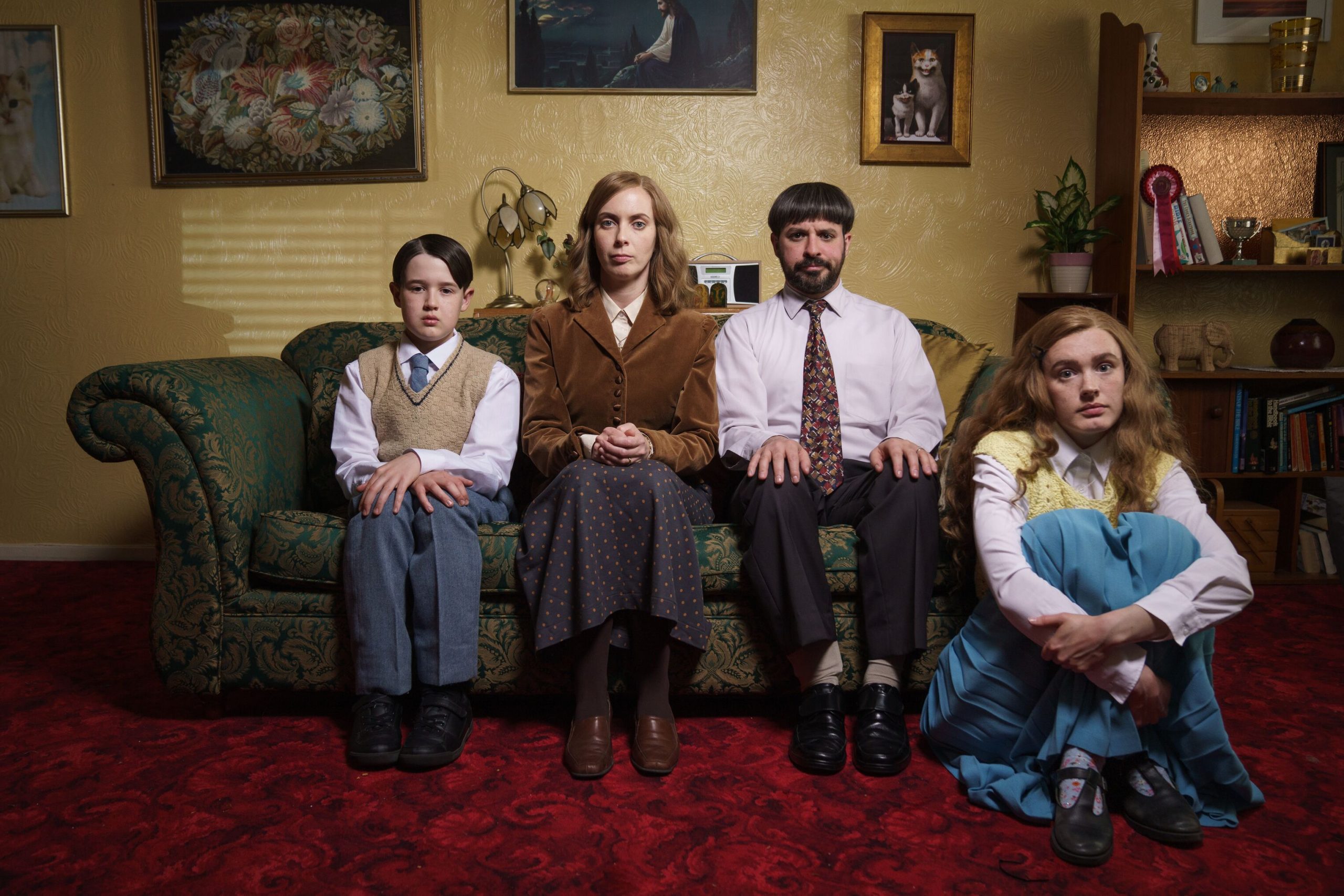
Credit: Channel 4
Channel 4 brings us quite a different but just as strange a comedic debut as you’ll ever see.
Simon Bird plays David, a stubborn little man, socially maladjusted with all the self-awareness of a stone. He and his family are part of a puritanical Christian sect, and he sees himself as the all-powerful patriarch even though he still hasn’t been promoted to church elder. Although he’s sure, that’s only a matter of time. He’s ready and willing for the apocalypse to come so his family can be saved, the ultimate I-told-you-so for the heathens.
So much so that he gives his family regular terrifying night-time apocalypse drills. David is a prepper for the end of days and is considered a zealot even in his own community. He’s loudly jealous of all the congregation’s achievements, exceedingly handsome Andrew – the Ned Flanders to his Homer Simpson. He’s basically Bird’s The Inbetweeners character all grown up.
David is hard to love, but I’m sticking around because I’m interested to see how his family will undermine him and take control of their own lives. His wife Fiona (Kate O’Flynn) and daughter Rachel (Amy James-Kelly) are already developing workarounds to defy their strict religious code. The casting of these two actors as a highly-strung and unfulfilled mother and daughter is perfect.
Rachel’s journey is the most interesting. She’s an intelligent, capable student ready to apply to university. But her dad wants her to devote her life to preaching. She’s in trouble with her parents because her grades are too good. The new boy in her life has been expelled from another branch of The Order, and she’s banned from talking to him. Eventually, she may have to choose between her family and her own happiness.
Listing the themes makes it sound heavy and severe, which couldn’t be further from the truth. It’s silly, strange and very entertaining, with costumes and interiors that hinted at Wes Anderson. I like how David is contemptuous of his job at the sorting office despite being treated like a god there. It’s the only place where he’s successful, but he just can’t see it.
Fight the Power: How Hip Hop Changed the World – BBC iPlayer
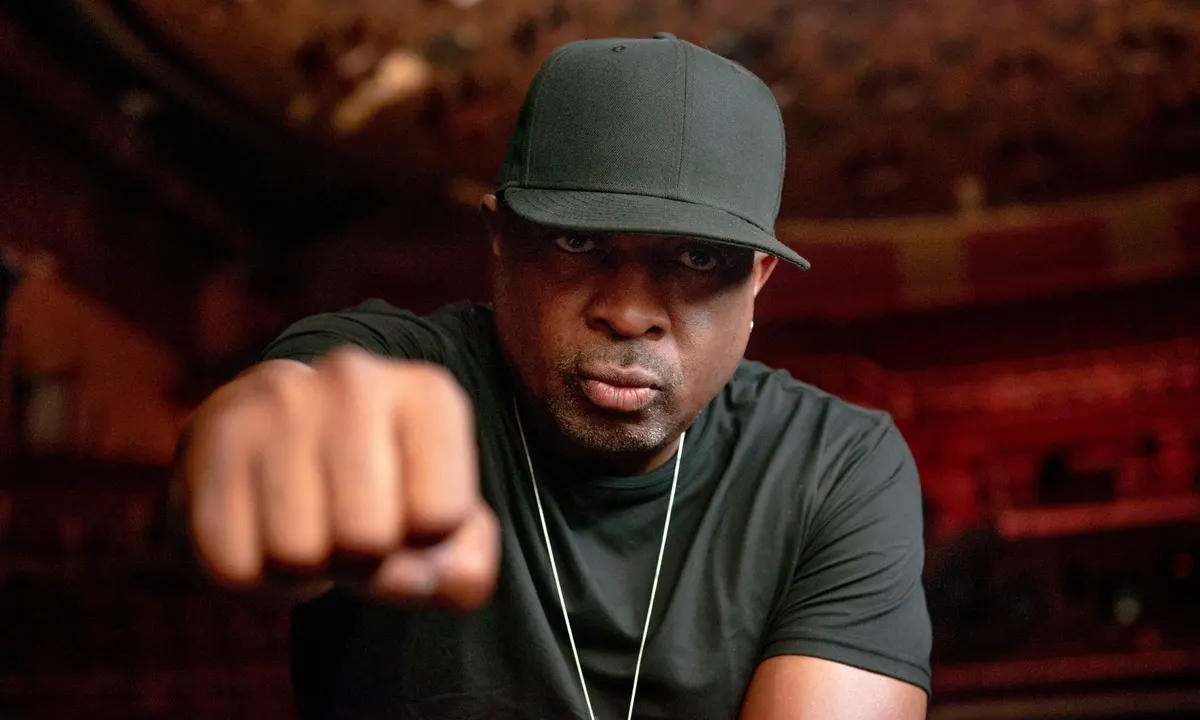
Credit: BBC
This documentary gathers together an incredible collection of artists, poets, authors, musicians and historians to chart the rise of hip-hop. It’s a four-part series discussing the intersection of race, politics, poverty, immigration, history, and culture that was such a fertile breeding ground for musical creativity. It’s packed with a fresh understanding of the music and is very quotable. It’s almost like these rappers have a way with words or something.
The footage of the 1970s South Bronx is particularly affecting as the place looks like a bombed-out warzone. New York was broke, and all services were underfunded to the point of collapse, a government policy of “benign neglect”. The media branded it ‘Fear City’.
Fire departments closed, and uncontrollable, devastating fires were set for insurance purposes. White flight meant all those who could afford it had left for the suburbs, so poor black people and Latin immigrants stayed put and ignored by politicians. Organised gangs came in and took advantage of the power vacuum, and the War on Drugs was set up to target black people. The written evidence of this discrimination enshrined in law is astounding.
Born of 1960s politics and resistance, Hip Hop and broader black culture were a defence against systemic oppression. “Questions aren’t getting answered by society, so we at least need the music to say something”.
But there are many happy memories too. Police looked the other way, so the kids had fun. This could be a tale of misery, but it’s also a history of achievement and innovation. Turntables were used instead of instruments because there were no music lessons in school. And people like DJ Kool Herc brought their form of disco to the street.
The party music took on a political message – reportage from the street that influenced a whole new generation of musicians and rebels. Today Hip Hop has space for the political, people who just want to dance and all those in between. And finally, female DJs and MCs are taking up space and being recognised.
These stories are told intelligently and authentically, tracking links I’ve never considered before. It’s a fascinating and unusual insight, and whether you’re a fan of Hip Hop or not, I recommend it.
If These Walls Could Sing – Disney+
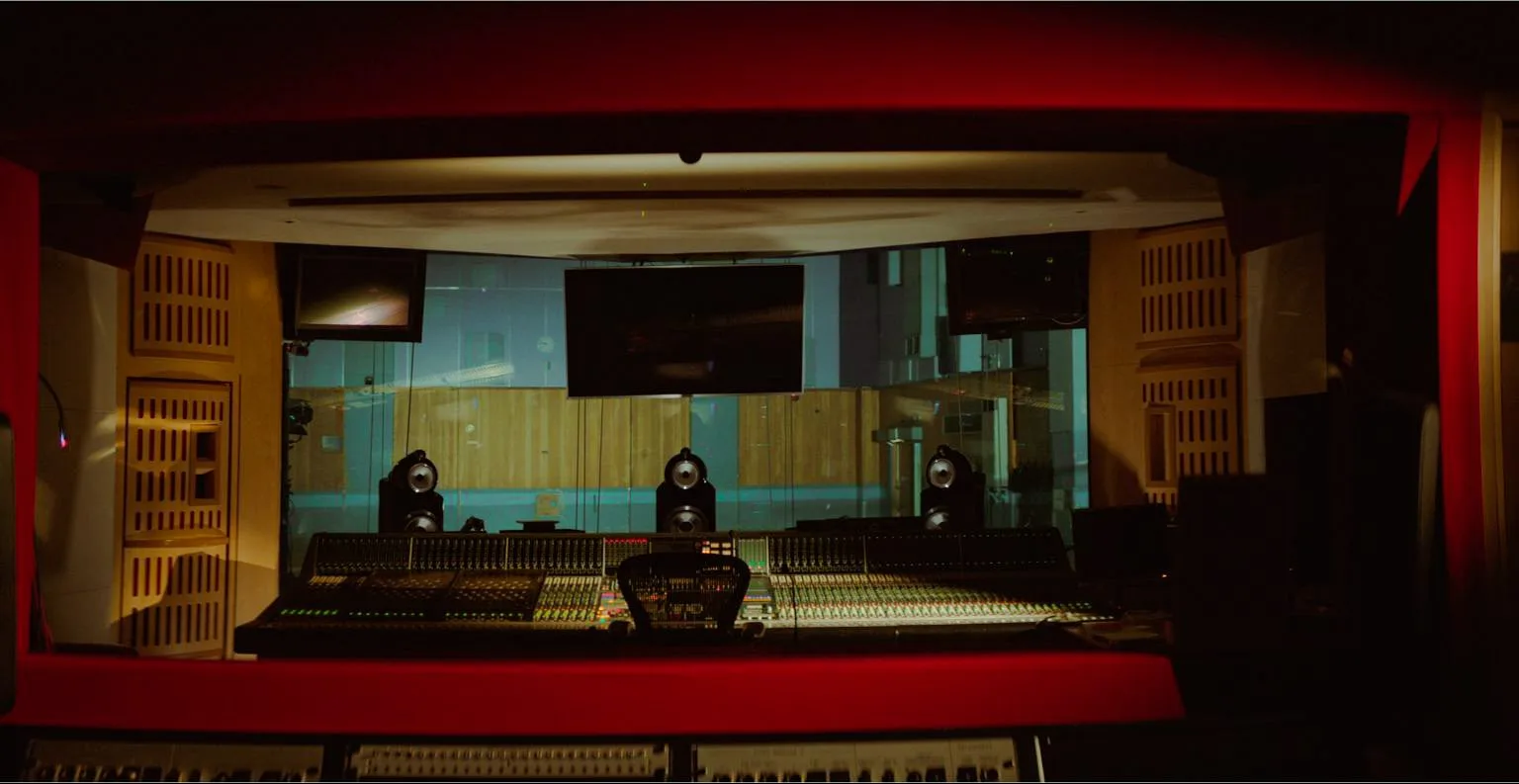
Credit: Disney+
Another music documentary for you, which promises to explore the diversity and ingenuity behind the world-famous Abbey Road studios, is not exactly heavy on diversity. We get to hear again (and again and again) how fabulous The Beatles are. This is a tune we know the words to already. A little more about the technicians and a little less about the stars would have been much more revealing and exciting. But documentary maker Mary McCartney, daughter of Paul, has the most significant access you could possibly get to the surviving Beatles. And you don’t waste that privilege by talking to regular Joes.
What’s most interesting is the stories of musicians that haven’t transcended into household names, or at least not in my household. The cello player Jacqueline du Pré put every ounce of emotion into her work. She was such a prodigy that when she was diagnosed with MS, she said she’d already done everything on the cello she wanted to. Fellow superstar cellist Sheku Kannah-Mason is touched to see the paperwork from her final recording, where after the first two sessions, she’s recorded as being too ill to continue.
Nigerian artist Fela Kuti insisted on the best studio available and recorded an album live with Ginger Baker on the drums. It seems that half the Nigerian diaspora is in attendance. (“Kula is in town! Kula is in town!”). His bandmates make it sound like the most exciting night of their lives.
Unexpectedly it’s Elton John who comes across most like the relatable young man he was who, as a session musician, was enchanted by what he saw. He combines the enthusiasm of a fan and a superstar.
Hollywood’s infatuation with the place was the studio’s saving grace in facing financial ruin. John Williams delighted in the sound the orchestra made there, saying conducting the London Symphony Orchestra was “like driving a Rolls Royce”. Of course, Abbey Road was originally built with symphony orchestras in mind, and Edward Elgar was pretty impressed with the place too.
It’s a pleasant enough watch and a joyful sound but promises far more than it delivers.
Sort Your Life Out – BBC iPlayer
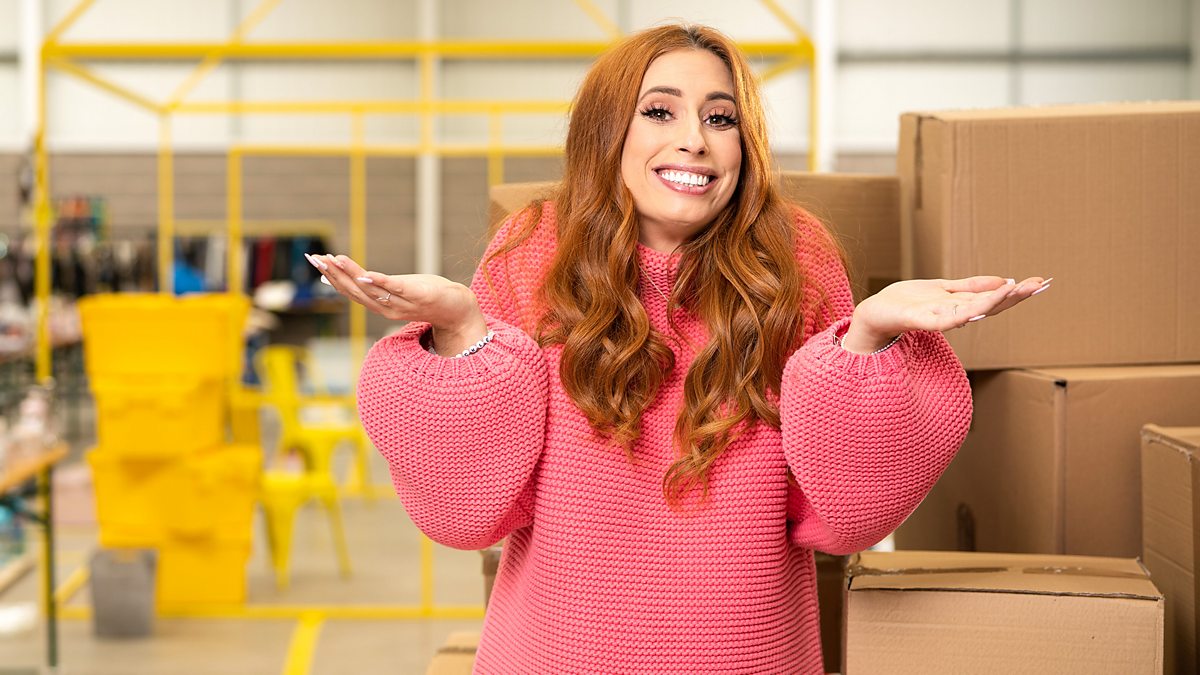
Credit: BBC
I watched the end of this program by accident, and the makeover reveals made me want to see the before. I was surprised that a format that could be so bossy and dogmatic was actually warmly supportive. This tone has a lot to do with the choice of presenter. Loose Woman Stacey Solomon takes her TV everywoman experience and uses it so well here. She is always ready to give the participants a hug. Given the emotions that de-cluttering can stir up, even in the most level-headed person, it’s a good job.
We meet a series of families overwhelmed by household clutter, some of who are close to tripping over into hoarding without an intervention. She and her team offer a very personalised home makeover to stressed-out people at the end of their tether. They have a week to de-clutter the house and put every single item in a giant warehouse organised beautifully by the production assistants, with a natural eye for what makes good television. Everything is pleasingly sorted and stacked right down to a set of spanners fanned out in a perfect circle.
So while the family sort through the mess and is encouraged to give away 50% of their belongings, their version of Handy Andy organises, paints and remodels the house to feel like a home. I’m not a fan of every packet in the kitchen having to be decanted into glass jars, but otherwise, this program is an unexpected joy.
Happy Valley – BBC iPlayer
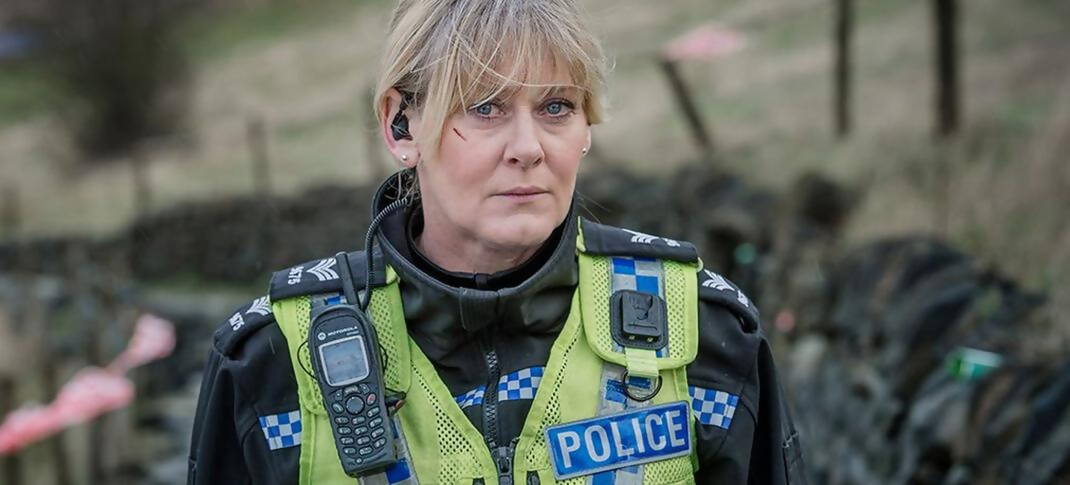
Credit: BBC
A quick word to those few people who haven’t given Sally Wainwright’s seminal series a chance: Yes, you’re right; it’s grim up north. The everyday tales of country folk in Calderdale focus on criminality, desperation and a particularly charming psychopath (James Norton has never been this terrifying). We journey through the valley populated by stoic suffering and small unhappy lives. There’s the failure of politics at every turn. The underfunding of the police force, social care, and schools. Stories cover people struggling with their mental health, women with no choice but to turn to sex work, and organised gangs bringing in drugs that wreck lives and communities.
But the counterbalance with light and humour is exceptional. At the centre of Happy Valley is the Cawood family, with an unbreakable bond and a relationship that celebrates the matriarchs keeping the show on the road and the teapot warm.
There’s nothing over-the-top here, no machine guns or explosions, no fanciful action hero storylines. The characters are multifaceted and realistic. The weak can be heroes or villains, depending on the day. Like hillwalking on the Peaks, the climb can be gruelling and painful, but it’s all worth it for the view from the top.
It’s been a joy to watch this series weekly; thanks to cliffhangers, it’s been discussed everywhere. This outpouring of love and delight in the characters and exceptional writing is exactly what it deserves. By the time you read this, we’ll have seen the final episode, and I am on tenterhooks.



